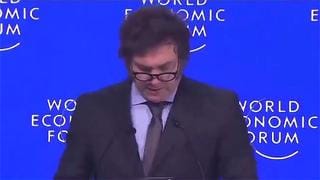Javier Milei, the recently inaugurated President of Argentina, has brought a wave of anticipation and apprehension with his latest economic strategy—allowing the Argentine peso to operate without government-imposed restrictions. It is a controversial maneuver that seeks to address long-standing issues in the country’s economy, plagued by inflation and currency instability. By making this bold decision, Milei aims to stimulate international investment and enhance the credibility of the peso in global markets.
The Argentine economy has faced a myriad of challenges, including runaway inflation, which has exceeded 100% annually, and a depreciating currency that has led to increased poverty and social unrest. Many economists argue that the peso has suffered due to years of government intervention aimed at controlling its value. Recognizing the necessity of reform, Milei’s proposal represents a radical departure from traditional economic policies that have been ineffective in reversing the downward trend.
Letting the peso off the leash involves allowing it to float freely, reflecting the real market forces of supply and demand without artificial limitations. This could potentially reduce the current black-market exchange rates that have flourished in recent years, encouraging the repatriation of the economy into legitimate financial systems. By bridging the divide between formal and informal currency markets, Milei hopes to strengthen financial stability, restore credibility, and ultimately attract foreign investment needed to reinvigorate the struggling economy.
However, the implications of this strategy are multifaceted. On one hand, freeing the peso could lead to a more realistic exchange rate, thus addressing the pervasive inflation the country faces. The removal of currency controls might also enhance transparency in transactions, making it easier for businesses to operate without the constant fear of government reprisals for currency fluctuations. Furthermore, allowing the peso to float might ease the financial strain on the central bank, enabling it to focus on other critical areas of economic management.
On the other hand, there are substantial risks involved. A sudden liberalization of the peso could lead to immediate volatility in the exchange rate. Many citizens fear a rapid depreciation of their savings, which could exacerbate the financial fallout for a population already grappling with poverty and high living costs. Milei will need to provide a robust framework to manage any potential fallout should investors react negatively to this significant change. Without adequate planning and safeguards, the economy could spiral further into chaos. This may instigate a loss of confidence and an unsettling flight of capital from the country.
International observers will be closely monitoring Milei’s actions to gauge not only the short-term effects but also the long-term viability of his approach. Many are optimistic that the shift away from previous economic policies could pave the way for a more stable economic environment. Milei’s administration has stated its commitment to ensuring that the transition occurs with minimal disruption to everyday citizens and businesses. However, critics question whether effective measures will be put in place to cushion the potential impact of such a radical change.
Furthermore, the Argentine government must consider the broader economic framework that supports this move. Merely freeing the peso will not resolve underlying issues such as a substantial fiscal deficit or questionable trade policies. Relevant structural reforms are essential for Milei’s gamble to pay off. Policymakers will need to contemplate more extensive fiscal strategies involving public spending cuts and comprehensive tax reforms that address distortions in the economic system while simultaneously maintaining social welfare for the vulnerable sectors.
As the economic landscape evolves, public sentiment is likely to play a crucial role in shaping the outcome of Milei’s gamble. Citizens are wary of the changes and the uncertainties they bring, particularly after enduring a cycle of austerity measures and broken promises from previous administrations. The government must strike a balance, fostering an environment of optimism while being transparent about the challenges that lie ahead. Communication will be essential for guiding public perception and acceptance of this crucial economic transition.
Argentina’s financial institutions, both domestic and international, will have a significant stake in the reevaluation of the peso. Banking sectors will need clear guidelines on handling currency fluctuations, ensuring stability for customers. Furthermore, the inclusion of multiple perspectives from private sector stakeholders could foster innovative solutions to mitigate the hurdles as the country transitions towards a more free-market economy.
Ultimately, Milei’s ambition to allow the peso to float freely signifies his response to the worsening economic climate. If successful, this strategy could herald the beginning of a new chapter in Argentine finance, focusing on restoring market confidence and building toward a sustainable future. The risks associated with this gamble are considerable, and the path ahead is fraught with challenges, but the government’s resolve to pursue untested waters could potentially lead to a renaissance in Argentina’s economic narrative.
